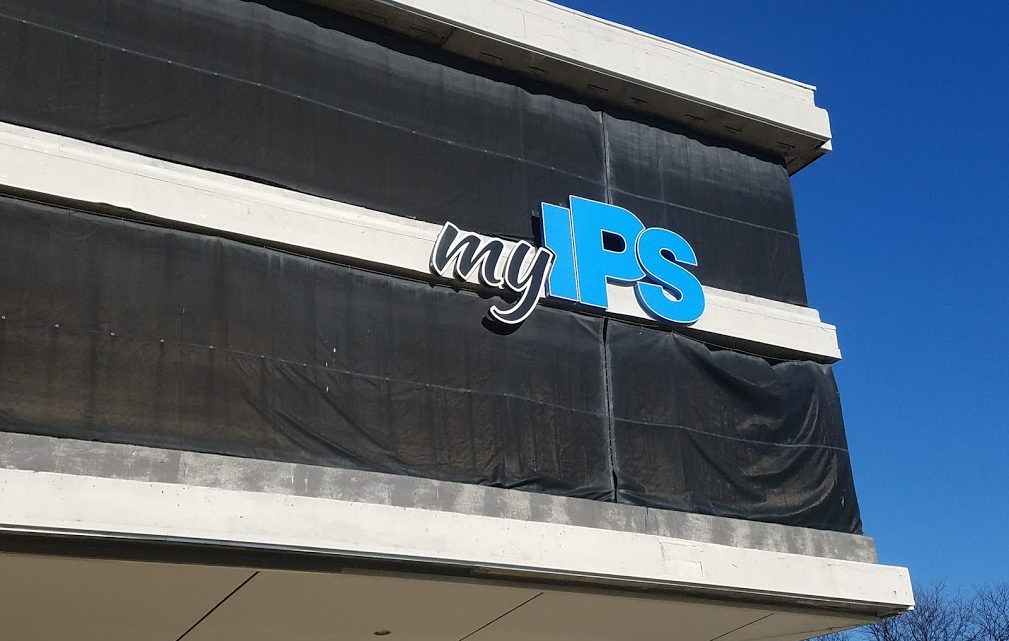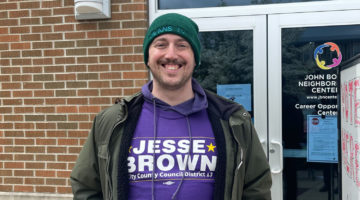By Jim Merritt, former Indiana State Senator
Two teens dead. Five others wounded. A mass shooting in the heart of downtown Indianapolis on July 5th. Carried out primarily by kids as young as 13. If you want a tragic snapshot of where we are as a city, this is it.
We can’t keep missing the point. We shuffle policies, reorganize campuses, and cut ribbons on initiatives like Rebuilding Stronger, all while refusing to face the one factor no program, consultant, or curriculum overhaul can fix: the erosion of accountability at home.
Launched in 2022, Rebuilding Stronger promised to modernize Indianapolis Public Schools (IPS) through grade reconfiguration, resource redistribution, and a new emphasis on equity. However, in practice, it has destabilized families, fractured school communities, and led to a decline in enrollment. Last year alone, traditional IPS-run schools lost nearly 800 students—a 3.7% drop—while the Innovation Charter Network picked up only 717. That’s a net loss and a signal that families aren’t buying what’s being sold.
Let me be clear: money isn’t the problem. Accountability is.
IPS spends more than $20,000 per student annually, more than many elite private schools. And yet, we’re seeing declining test scores, rising absenteeism, and worsening behavior. Teachers are worn down. They’re leaving. We’ve spent the dollars, but we’ve abandoned the discipline.
Even in early education, where prevention matters most, we’re falling short. This summer, IPS announced that parents will now be charged for Pre-K just weeks before school begins, after most alternative options had closed their enrollment. Why? Because the district had relied on expiring pandemic funds and shrinking state support, with no backup plan. And when those funds ran out, they passed the cost on to families who were already struggling financially.
The result? According to a recent WTHR report, enrollment in Indiana’s On My Way Pre-K program plummeted from over 6,000 children last year to just 2,500 this fall. Eastside centers like Little Duckling are experiencing empty classrooms, not because of a lack of demand, but because of a lack of access. Working-class parents who can’t afford preschool are forced to stay home or settle for low-quality care. That harms the workforce. It harms children. And it harms all of us.
Because Pre-K isn’t a luxury, it’s upstream prevention. It provides structure and support at a moment when children are most impressionable. When we cut off access, we increase the chance that more kids fall through the cracks.
That early gap turns into a lifelong one. We can’t police our way out of it, especially when young teens are roaming the streets with loaded guns, and some parents are dropping them off downtown expecting IMPD to babysit. That’s not public safety. That’s neglect.
And too often, when we try to discuss root causes, such as family structure, adult presence, or parental responsibility, the conversation gets hijacked. We’re accused of being insensitive or out of touch. But we can’t let fear of offending outweigh our duty to protect children. Arguing over language won’t bring back the lives we’ve lost. Honest conversations might.
Instead of raising expectations, IPS has lowered them. Instead of insisting on parental engagement, we’ve built systems that work around it. We’ve softened standards to avoid discomfort, and in doing so, sent the message that kids don’t need structure, and adults don’t need to show up.
Meanwhile, IPS maintains a top-heavy bureaucracy. The district leadership salaries are significantly above the state average and substantially higher than national norms for urban districts. All while families are being asked to pay for preschool or go without it. That’s not equity. That’s administrative bloat.
Equity doesn’t mean accepting failure. It means refusing to let zip code or home life dictate destiny. Right now, we’re accommodating dysfunction in the name of inclusion. That’s not justice. That’s surrender.
That’s why I’m calling on IPS and all of us to commit to a different path. Let’s launch a Community Commitment Compact —a shared agreement among schools, caregivers, and neighborhood institutions to raise expectations for student conduct, adult involvement, and academic engagement.
When we say “family,” we’re not talking about a traditional mold. It could be a grandparent, a sibling, a mentor, a coach, or a neighbor. What matters is that every child has a steady, invested adult in their life. Someone who shows up, speaks the truth, and stays present.
Let’s reintroduce boundaries. Let’s tie access to special programs and opportunities to meaningful adult participation. Let’s build mentoring pipelines so when support at home is fractured, someone else steps in.
And here’s the good news: we already have the blueprint. Faith-based groups. After-school programs. Trauma-informed educators. They don’t need reinvention. They need funding, engagement, and respect.
We also need action at the state level:
- Restore and prioritize Pre-K funding. Early education is essential, not optional.
- Hold IPS accountable for smarter budgeting. Cut bureaucracy. Prioritize classrooms.
- Support real prevention. Youth curfews and metal detectors are too little, too late. We must act earlier.
This isn’t about politics. It’s about priorities. It’s about the kind of city we want to be.
Because if we don’t start moving upstream, toward prevention, responsibility, and support, then we will continue to pull more and more children out of the river.
And eventually, we won’t be able to keep up.











